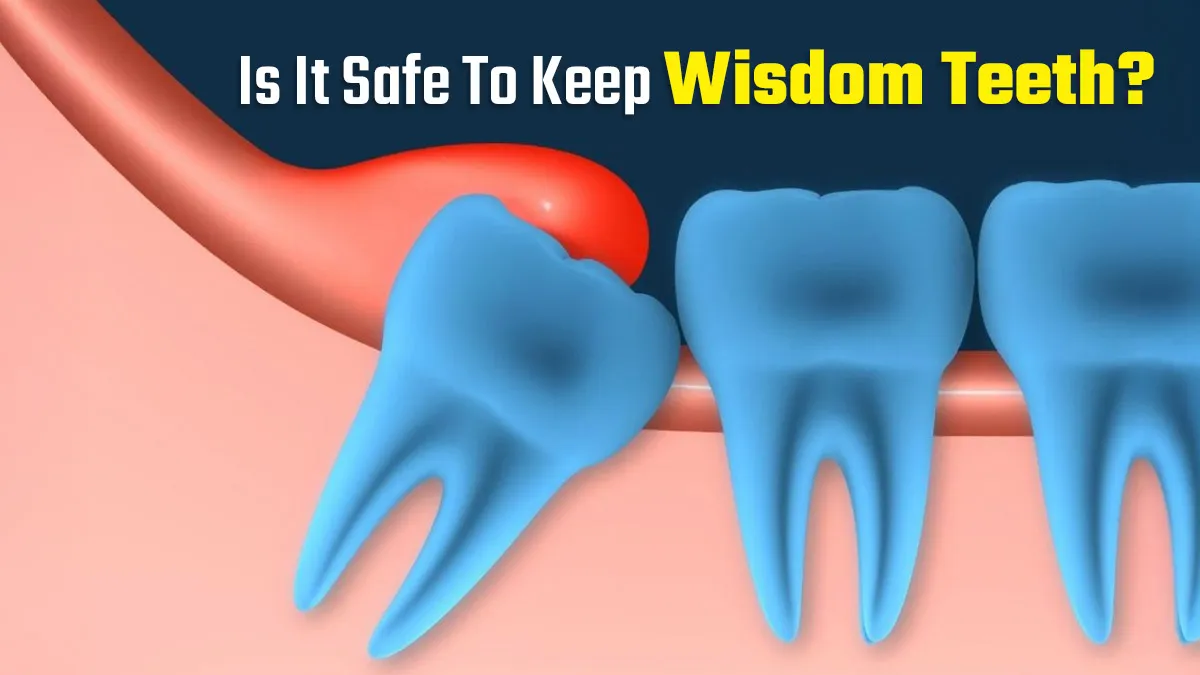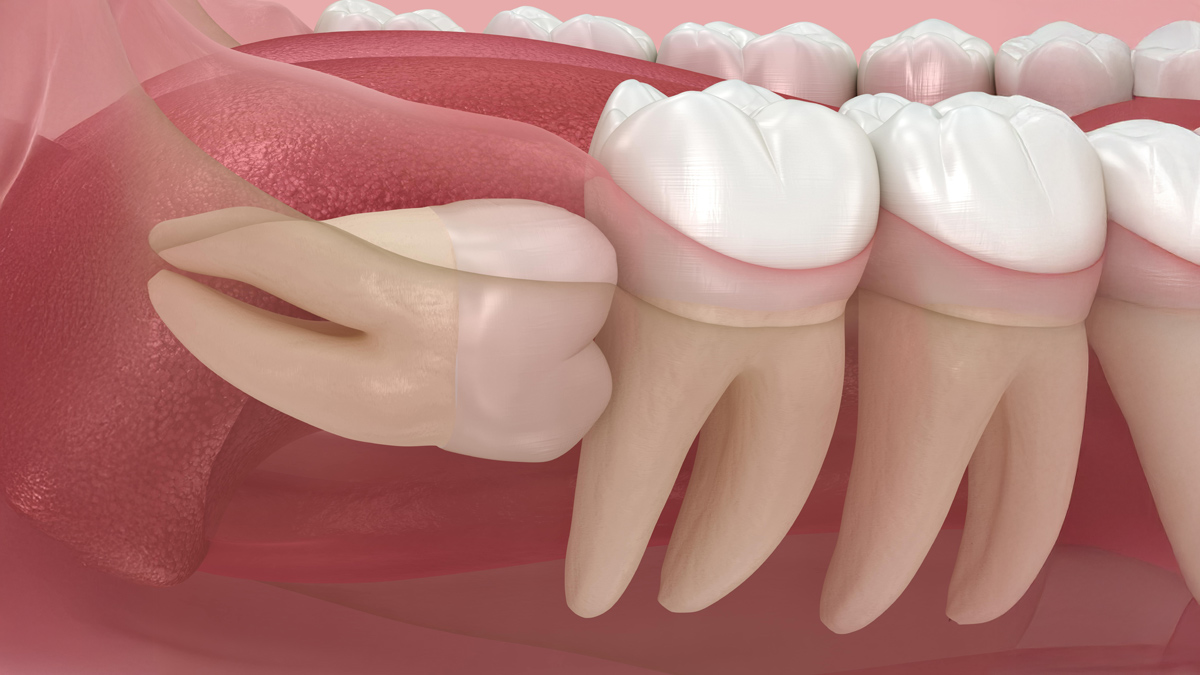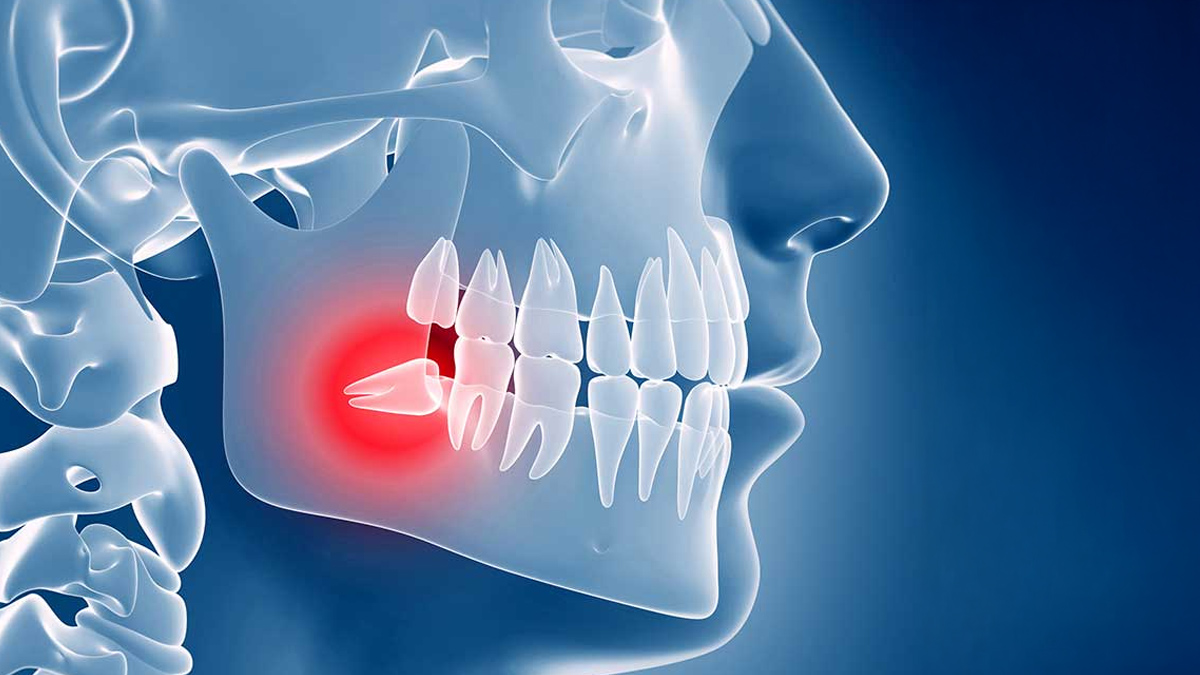
Wisdom teeth, also called third molars, are often linked to pain and discomfort. Many people dread their arrival, as these teeth can cause swelling, soreness, and trouble chewing. The fear of wisdom tooth pain is common, and for some, it leads to a quick decision to have them removed. But is it always necessary to pull out wisdom teeth? Or can you safely keep them? Read ahead to find out as we reached out to Dr Lakita Gulati, Periodontist, Sh Wazir Chand Memorial Dental Clinic, New Delhi, who shared expert insights.
Table of Content:-
Why Do Wisdom Teeth Cause Problems?![is wisdom teeth safe 2 - 2025-06-30T130827.660]()
Wisdom teeth are the last set of molars to appear, usually between the ages of 17 and 25. Sometimes, there is not enough space in the mouth for these teeth to come in properly. This can lead to:
- Pain and swelling
- Infection
- Crowding of other teeth
- Tooth decay or gum disease
- Because of these issues, many people think that removing wisdom teeth is always the best choice.
Dr Lakita Gulati explains, "There are no scientifically proven health benefits of pulling wisdom teeth that don't cause any problems. Wisdom teeth are usually only removed if they cause problems, or are likely to in the future." This means that if your wisdom teeth are not causing any pain or trouble, you may not need to have them removed.
ALSO READ: Does Tooth Scaling Damage Your Teeth? Debunking Common Myths and Facts
Important Questions to Ask Before Removal![Wisdom Teeth 3 - 2025-06-30T130823.623]()
Before deciding on surgery, Dr Gulati suggests asking these questions:
- Have your wisdom teeth already caused pain or damage to your jaw or nearby teeth, or is there an increased risk of that happening?
- Are the wisdom teeth preventing the other teeth from developing properly?
- Might the wisdom teeth interfere with other dental or jaw-related treatments that are already planned?
- What risks are associated with surgery?
- Could the wisdom teeth "replace" molars (back teeth) that are missing or badly damaged?
- These questions can help you and your dentist make the best decision for your dental health.
When Is It Safe to Keep Wisdom Teeth?
Dr Gulati further adds, "It is generally safe to keep wisdom teeth if they are fully erupted, properly positioned, cavity-free, easy to clean, and not causing any problems." So, if your wisdom teeth have come in straight, are not crowded, and you can keep them clean, you may not need to worry about removing them.
A study published in the Cochrane Database of Systematic Reviews found that there is no strong evidence to support the removal of wisdom teeth that are healthy and not causing problems. The study suggests that unnecessary removal can lead to pain, swelling, and other risks from surgery.
What Are the Risks of Removing Healthy Wisdom Teeth?![risks of Wisdom Teeth 4 (80)]()
Removing wisdom teeth is a surgical procedure and, like any surgery, it comes with risks. These risks are especially important to consider if your wisdom teeth are healthy and not causing any problems. These risks are especially important to consider if your wisdom teeth are healthy and not causing any problems. Always weigh the benefits and risks before choosing surgery. Some of them are mentioned below.
- Common side effects include pain, swelling, and difficulty opening your mouth.
- There is also a chance of infection, bleeding, and, in rare cases, nerve injury that can cause numbness in the lips, tongue, or chin.
- Dry socket, a painful condition where the blood clot in the socket is lost, can also occur.
ALSO READ: Is Your Toothache a Symptom of a Heart Attack? Cardiologist Weighs In
Conclusion
Wisdom teeth do not always need to be removed. If they are healthy, fully grown in, not causing pain, and easy to clean, it is safe to keep them. Always talk to your dentist and ask the right questions before making a decision. Removing wisdom teeth should only be done if there is a clear reason or risk.
Also watch this video
How we keep this article up to date:
We work with experts and keep a close eye on the latest in health and wellness. Whenever there is a new research or helpful information, we update our articles with accurate and useful advice.
Current Version



-1751269459922.jpg)